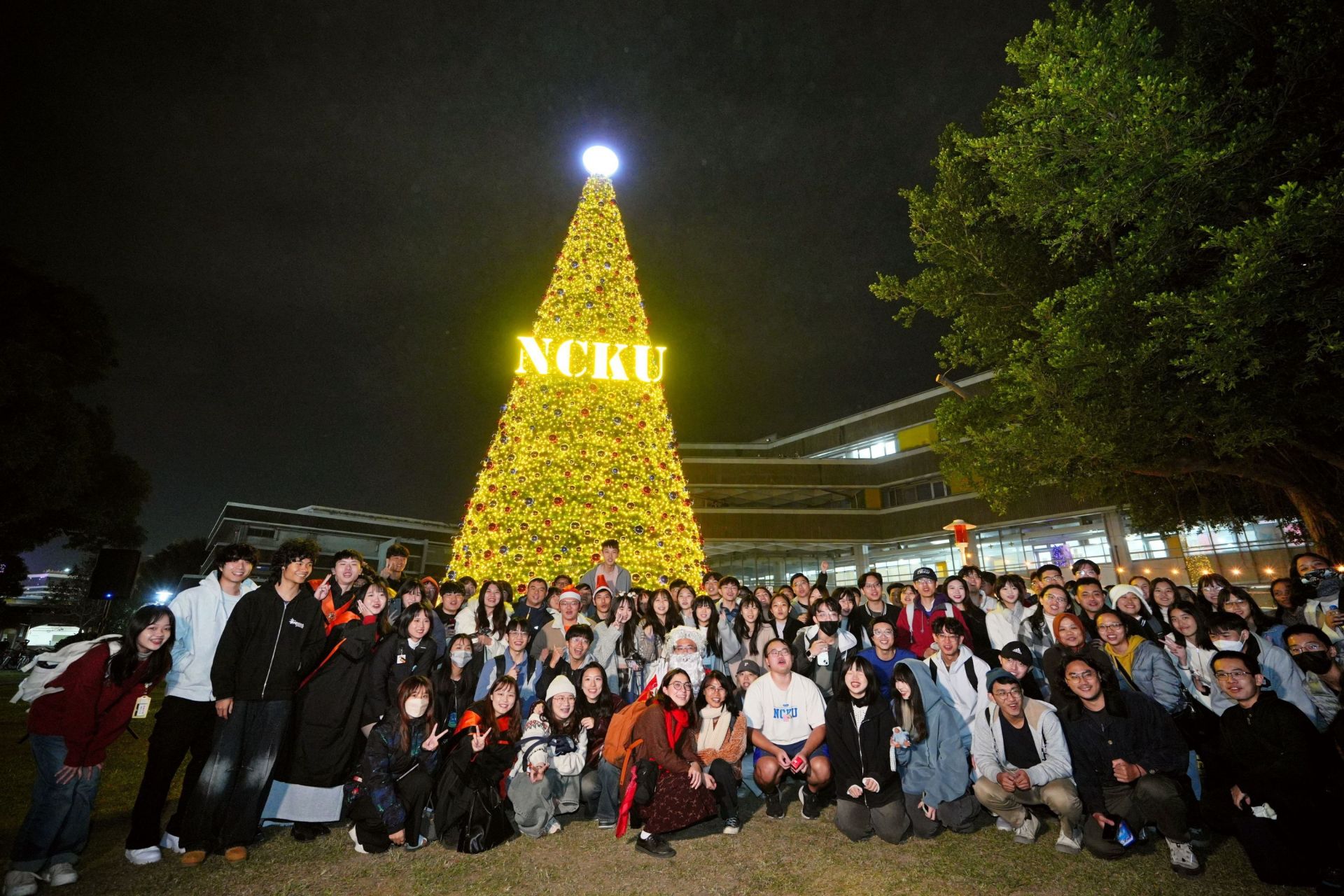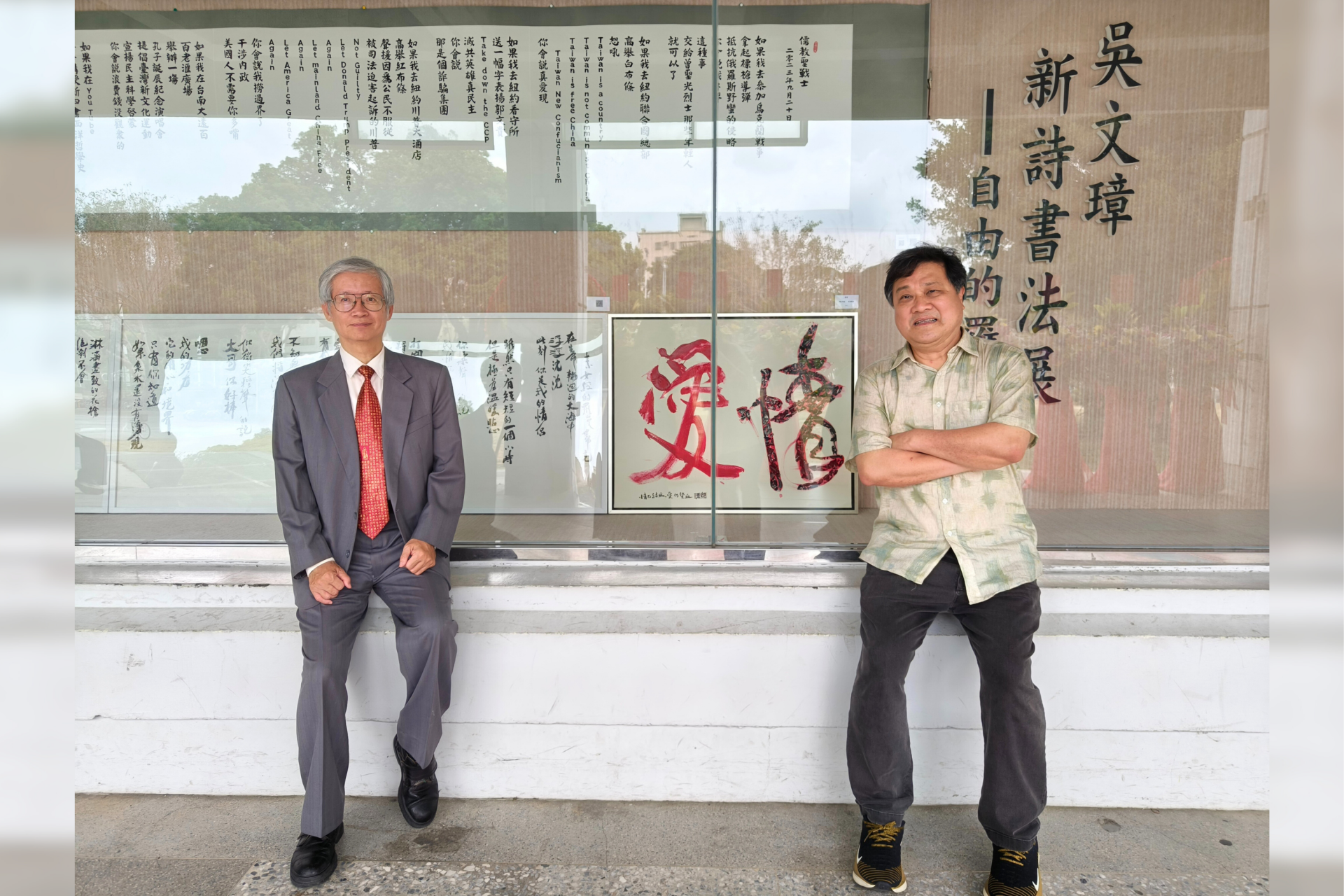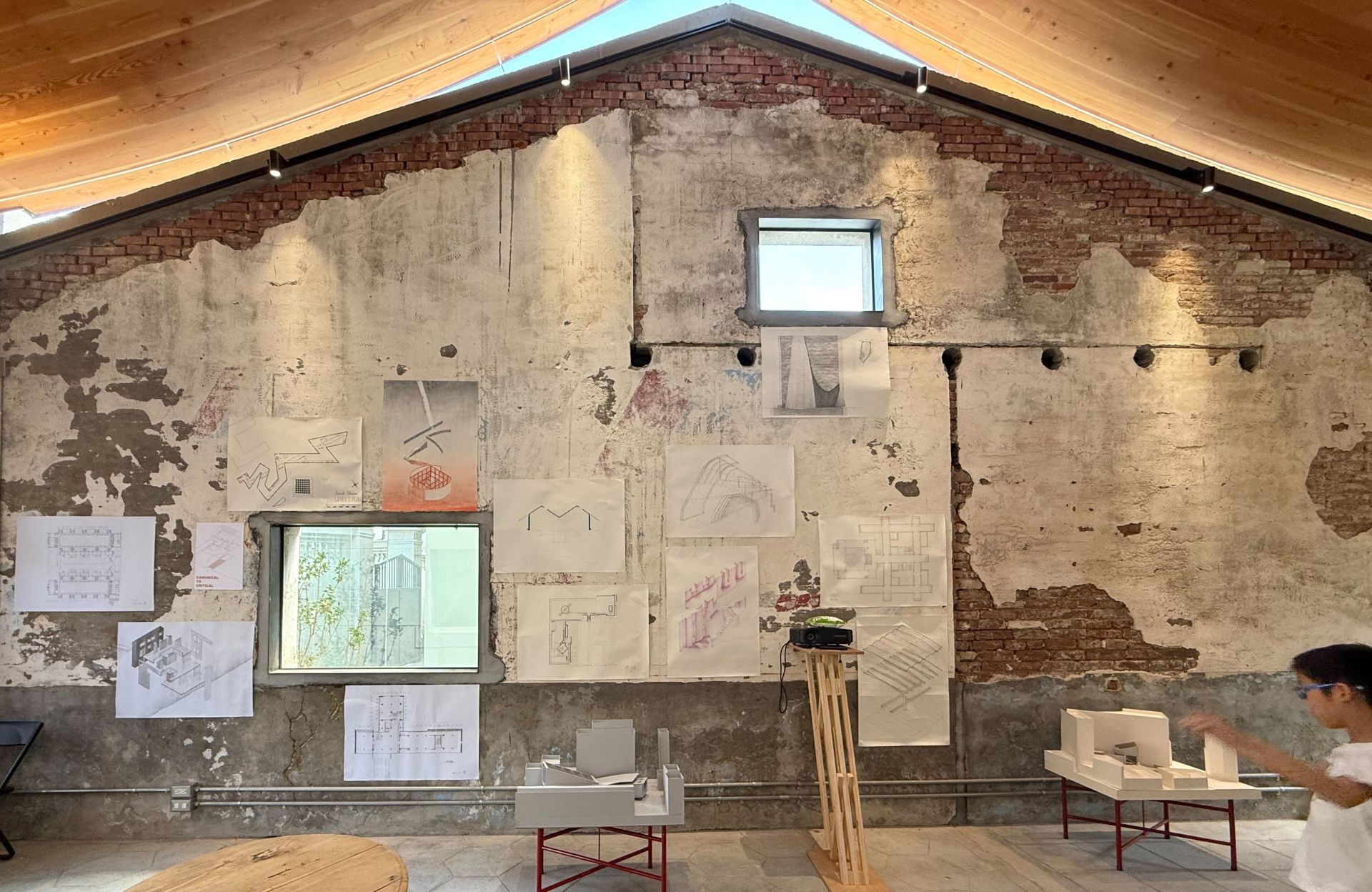"NCKU Wins Big Again: Takes Home 'Local Integration' and 'Welfare Coexistence' Awards for Second Year in a Row"
President Meng-Ru Shen, former director of NCKU Hospital, personally attended to receive the "Welfare Coexistence" first prize. In his speech, he emphasized that aging at home is a common desire for most people, but ensuring a smooth and peaceful transition requires not only expertise but also patience and compassion. He described home-based palliative care as the highest medical paradigm, emphasizing the university's responsibility to provide the best healthcare services in southern Taiwan and beyond.
Representing the receipt of the "Local Integration" first prize was Professor Taysheng Jeng from the Department of Architecture at NCKU. In his speech, he expressed gratitude to Professor Chao-Ching Fu, former President Huey-Jen Su, and current President Meng-Ru Shen for their visionary support. Cheng highlighted the significance of the Matsu Islands transformation project in planting seeds of hope for the future amidst the Cold War era, showcasing Taiwan's values of art appreciation and peace to the world. He stressed that NCKU's University Social Responsibility (USR) project is not only about revitalizing local communities but also about fulfilling Taiwan's broader responsibilities.
The 4th edition of the Global Views Monthly University Social Responsibility Awards received 120 entries competing for 7 categories, ultimately awarding 7 first prizes and 16 exemplary awards. Outstanding projects spanned categories such as "Ecological Harmony," "Local Integration," "Industrial Collaboration," "Welfare Coexistence," and "Talent Co-learning," with the addition of a new category, "Green Campus." This year, the evaluation criteria were revamped to include the submission of "University Sustainability Reports" in place of comprehensive performance assessments.
The theme of NCKU's project "Turning Military Sites into Cultural Spaces" (2020-2022) focused on reinterpreting military bases in Matsu Islands. Through design and cultural perspectives, the project engaged in dialogue with historical military sites to develop new functional spaces and interpret new spatial meanings, enriching the charm of the islands. Led by Professor Taysheng Jeng, a multidisciplinary team of over ten faculty members from various departments including architecture, urban planning, industrial design, creative industries, science and technology, and history collaborated on the project.
NCKU focused on the theme "Transforming Military Sites: Cultural Regeneration" (2020-2022), undertaking comprehensive integration and strategic planning. It addressed four main aspects: "World Heritage Potential Sites," "Regeneration of Military Heritage," "Preservation, Interpretation, and Regeneration of Military Cultural Landscapes," and "Island Museums/International Art Islands." These efforts assisted Matsu in the historical revitalization project of Lienchiang County.
During the implementation of the project, NCKU expanded its comprehensive partnership with Matsu Islands. In November 2020, under the leadership of then-President Huey-Jen Su, NCKU organized an innovation consensus camp in Matsu Islands, demonstrating strong support and sincerity. This marked the first time in nearly 60 years that around 60 university executives traveled together to an outlying island for such an event, deepening the integration of humanities and technology and fostering consensus for a shared educational vision.
Subsequently, in 2021, NCKU collaborated to produce the 90th Anniversary Matsu Commemorative Wine, and in 2022, signed a memorandum of cooperation for the Matsu Micro-College, a new type of organization breaking away from traditional university frameworks to connect local energy in Matsu Islands with interdisciplinary educational resources, shaping an alternative small-scale college centered around island fields, mission-oriented, project-driven, and problem-based learning. Through the power of art and design, the project aims to integrate the humanistic history, ecology, and culture of Matsu Islands into daily life, driving industrial innovation and shaping a global discourse on island diversity and sustainable development.
Additionally, NCKU won the "Welfare Coexistence" first prize for its project "End-of-Life Care at Home - Quality Comprehensive Palliative Care." Led by Associate Professor Peng-Chan Lin from director of the NCKU Hospital Palliative Care Ward, the team recognized that when the patient's chances of recovery are low and the end of life is imminent, care is not just about curing but also about providing comfort. The project aims to bring care back to patients' homes, offering comprehensive care centered on patients' physical, psychological, and spiritual needs, supporting families throughout the process, and collaborating with community resources to create a win-win situation for patients, families, hospitals, and society.
Since its inception in 1994, when Taiwan's hospice care pioneer Ke-Shih Chao promoted hospice care at NCKU, the university has formed the largest hospice care team in Taiwan, comprising physicians, nurses, social workers, music therapists, spiritual care providers, and volunteers. Regardless of patients' illnesses or ages, the team is on standby 24/7, providing innovative and precise care. NCKU's hospice care service covers 28 administrative districts across two municipalities, with the number of home hospice patients increasing annually. In 2021, the service volume exceeded 9,000 person-times, serving 623 individuals, 25 times the national average. As a result, NCKU's home hospice care rate reached 81.8%, far surpassing Europe's 40.2% and the United States' 30.7%.
Many mistakenly equate "palliative care" with "giving up treatment." Dr. Peng-Chan Lin, director of the NCKU Palliative and Supportive Care Center, and oncologist, explained that palliative care provides a higher standard of care and does not hasten or delay death. Instead, it ensures that patients receive comfortable and dignified care throughout their end-of-life journey. For this reason, the palliative care team relies on big data to understand patients' past, care for their present, and predict their future needs. NCKU has collected data on over 8,000 hospice patients from 2005 to 2020, allowing for tailored treatment strategies at different stages of illness. Dr. Lin emphasized the importance of meticulous care, stating that while medical treatment is essential, when medical interventions are no longer effective, priority should be given to providing comfort care such as aromatherapy massage, soothing hair washing, and lymphedema care.
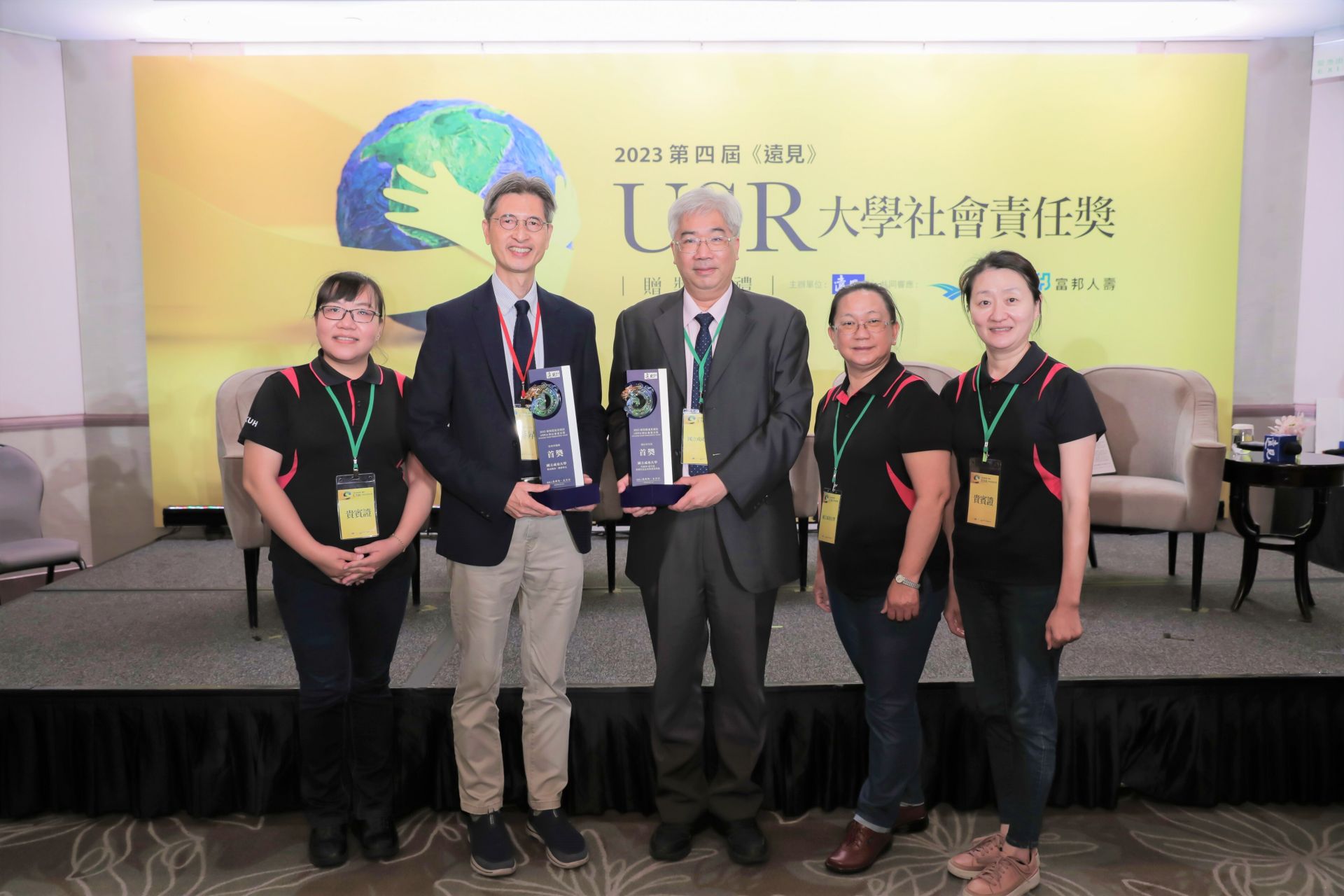
In 2023, for the fourth consecutive year, NCKU emerged as the biggest winner of the Global Views Monthly's University Social Responsibility Awards, receiving two top awards for "Local Integration" and "Welfare Coexistence".
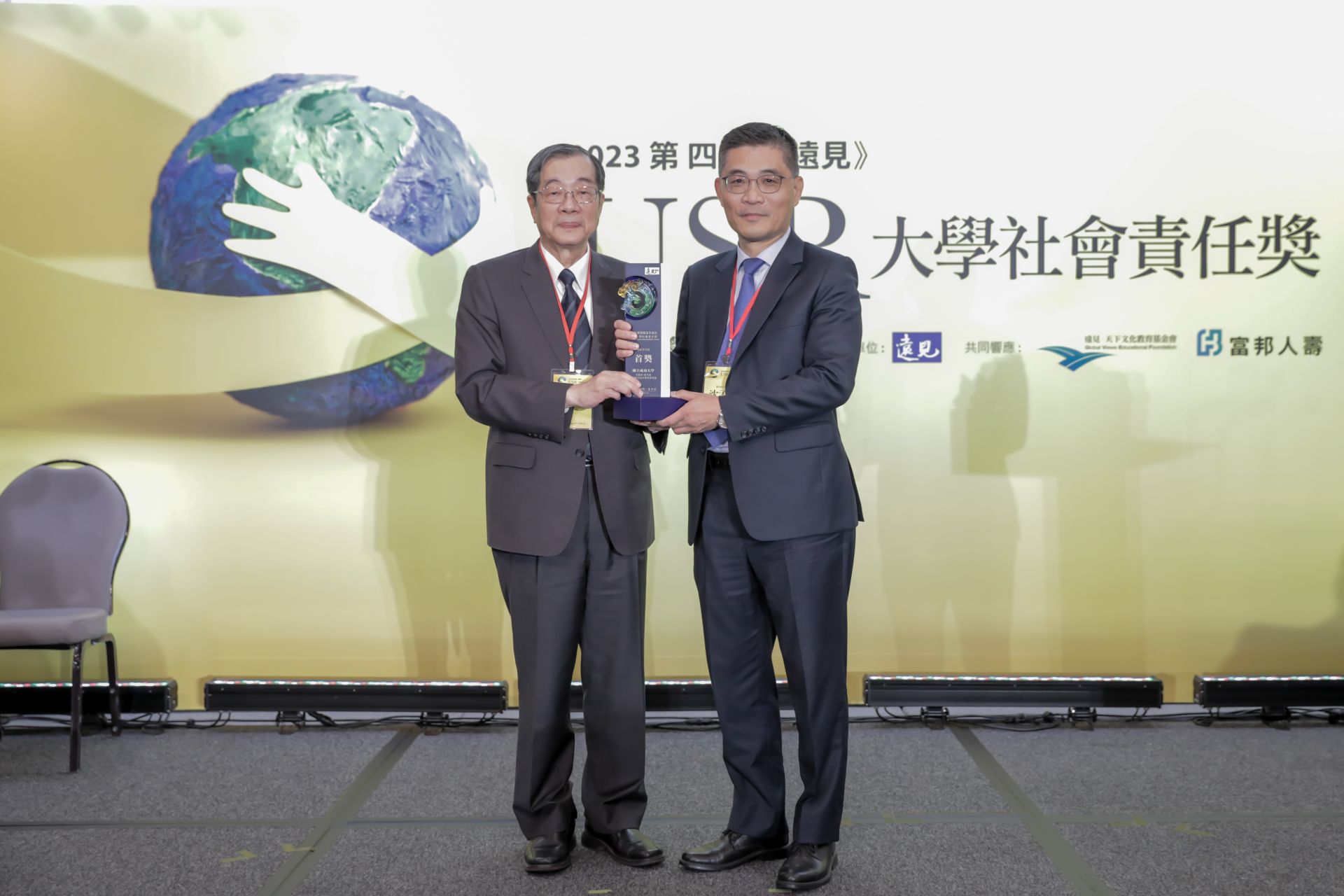
Former NCKU Hospital director and current NCKU president, Meng-Ru Shen (right), personally attended to receive the first prize for "Welfare Coexistence".
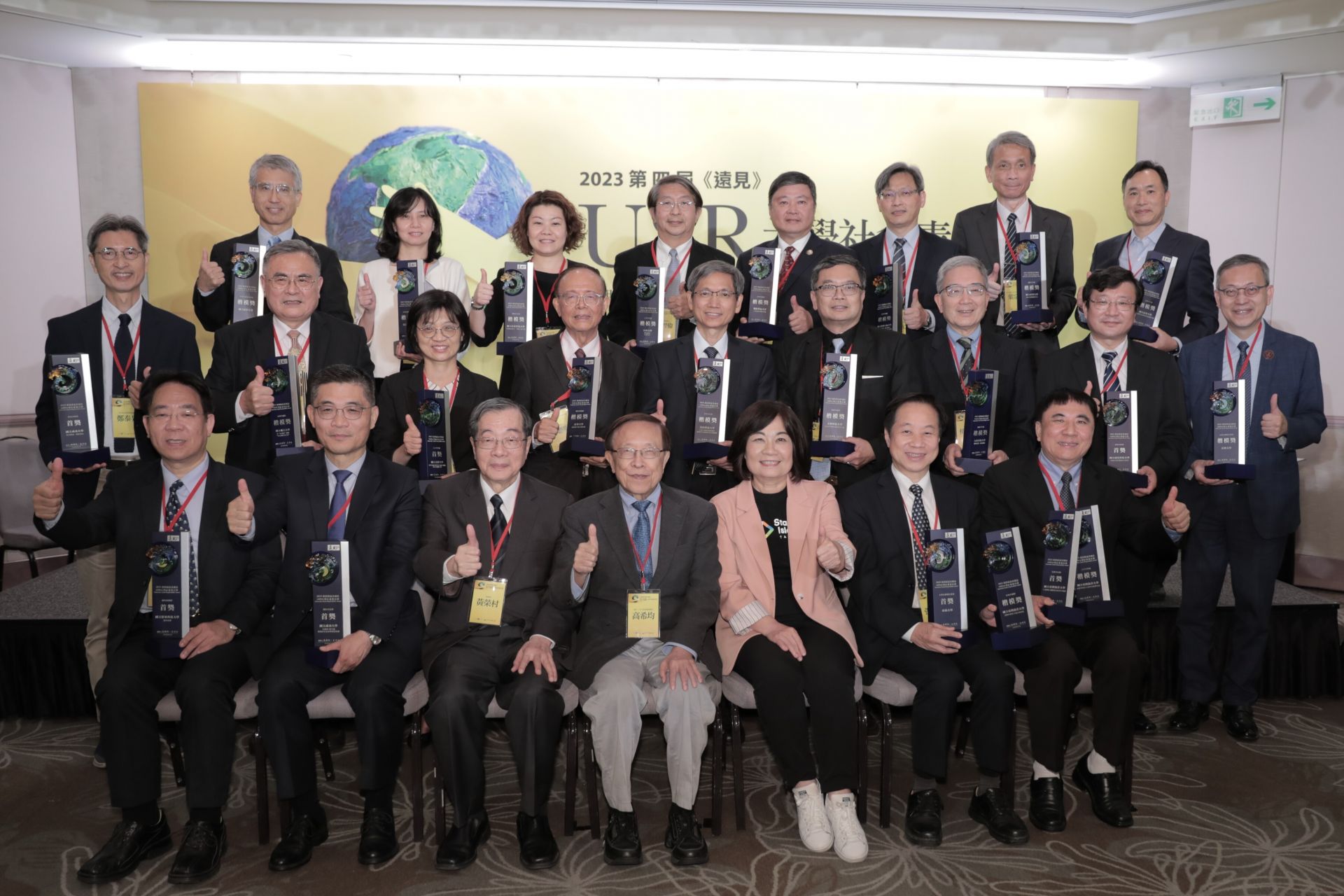
The 4th "Global Views Monthly" University Social Responsibility Awards in 2023 attracted 120 entries competing for 7 categories, ultimately awarding 7 first prizes and 16 model awards.
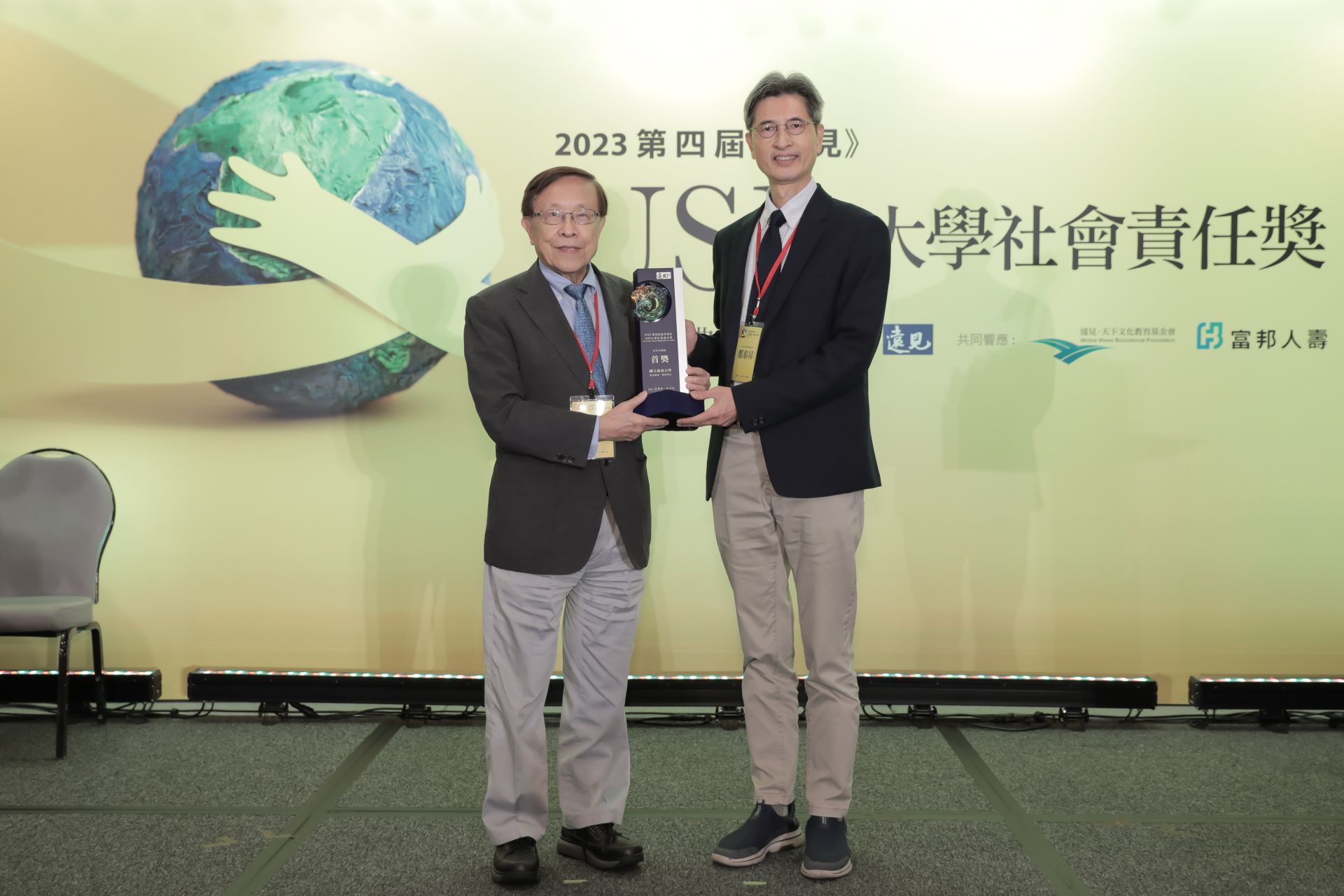
Professor Taysheng Jeng from the Department of Architecture at NCKU (on the right) received the "Local Integration" first prize on behalf of the university.

To expand the comprehensive partnership between NCKU and Matsu, in November 2020, led by the then president, Huey-Jen Su, the university moved its Executive Innovation Consensus Camp to Matsu.
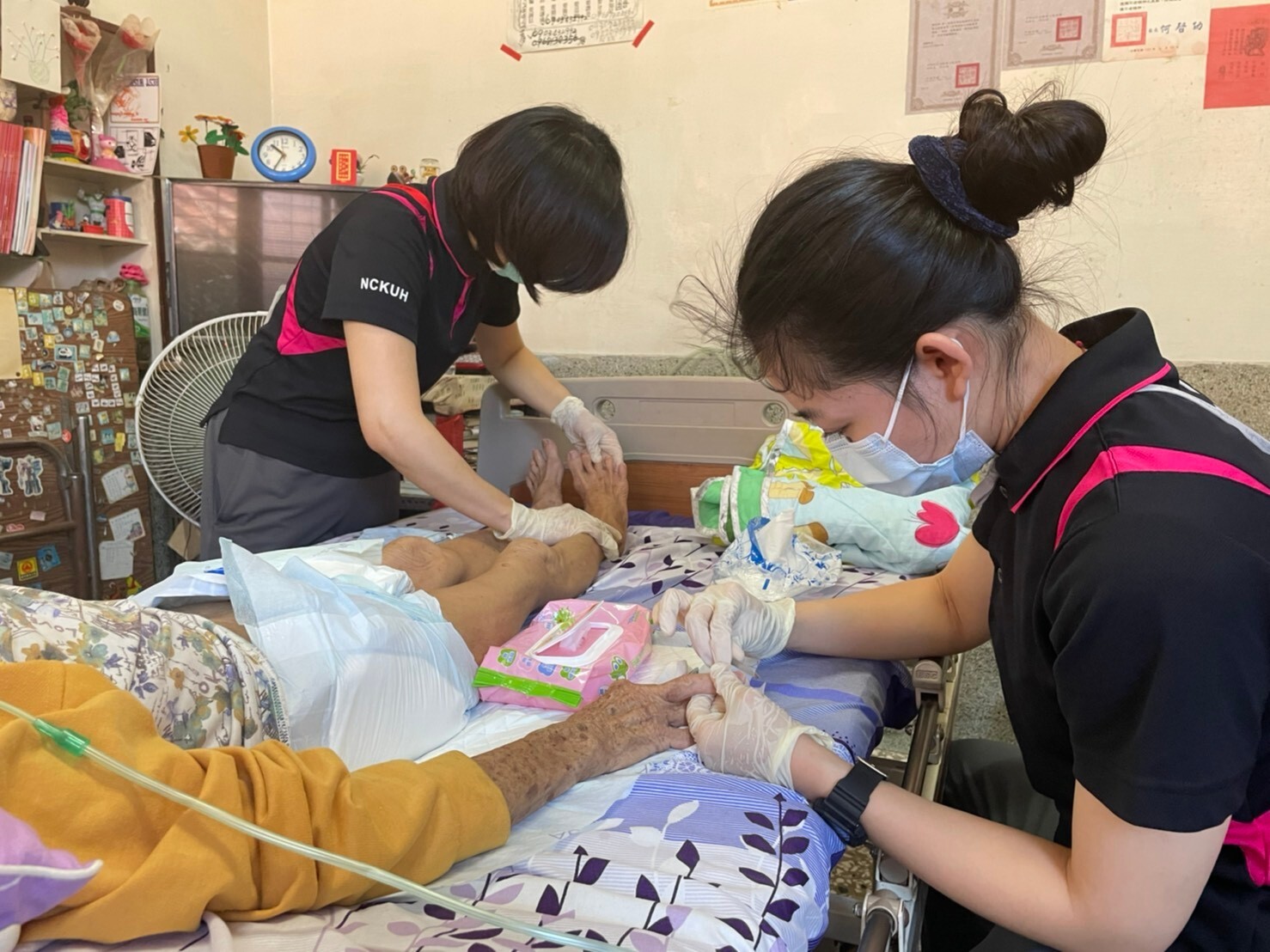
NCKUs "Good End at Home - Quality Integrated Palliative Care" won the "Welfare and Symbiosis" first prize. The team emphasized that when the cure rate for patients is low and life begins to count down, it's not just about "cure" but also about "care".
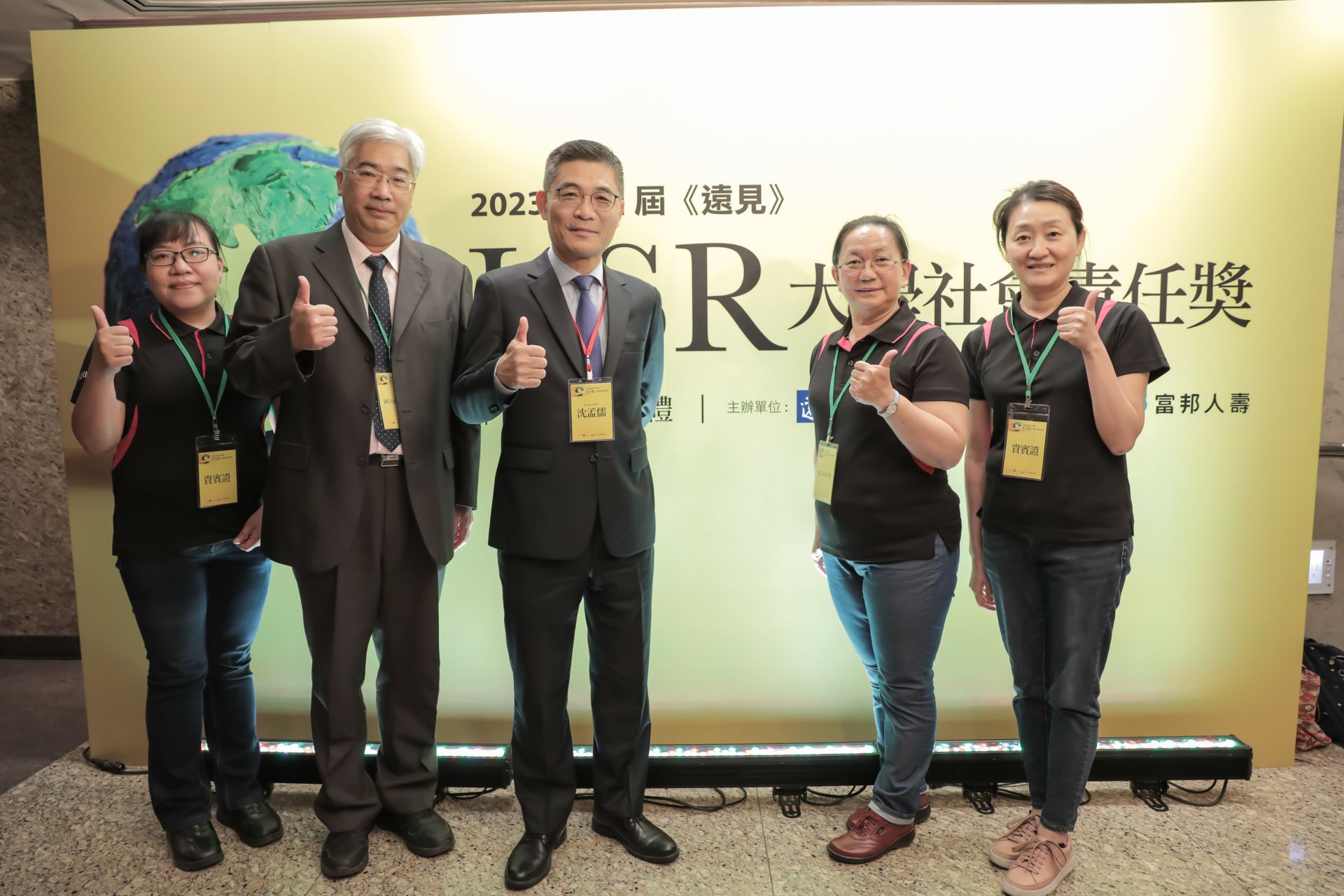
NCKU's Director of Palliative and Supportive Care Center and oncologist Dr. Peng-Chan Lin (second from the left) explained that palliative care neither delays nor hastens death but provides a higher standard of care, allowing individuals to walk through life's final journey with peace and dignity.






